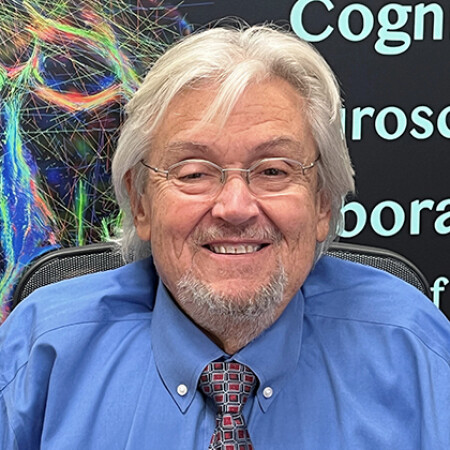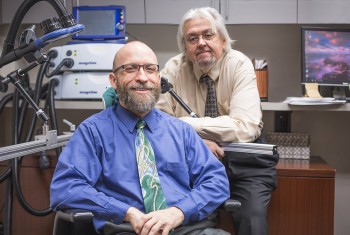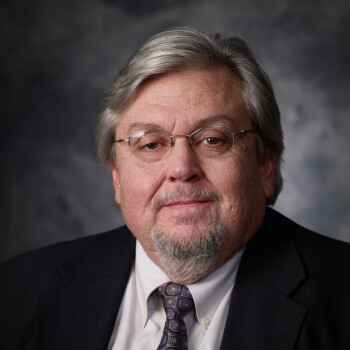M.D.
University of Maryland School of Medicine - 1983

John Hart, Jr.
Distinguished Chair in Neuroscience
Professor of Behavioral and Brain Sciences - Department of Speech, Language, and Hearing
Professor of Neurology, Psychiatry, and Clinical Psychology (UTSW)
Research Interests: Identifying the neural basis of semantic memory with imaging and electrophysiology, and applying these findings to diagnosing and treating patients
972-883-4832
CD A115
Cognitive Neuroscience Laboratory of Memory and Language
Endowed Profile
Curriculum Vitae
ORCID
Professional Preparation
B.A. - Psychology
The Johns Hopkins University - 1979
The Johns Hopkins University - 1979
Research Areas
Research Interests
My research interests have focused on the neural basis of semantic memory in the human brain. My work, spanning several decades, has focused on identifying the organization of semantic memory in the human brain by proposing that there is both a categorical and featural structure to object memory that exists in multiple semantic memory subsystems in the brain. My laboratory's recent studies have used functional neuroimaging and electrophysiological investigations to explore the neural mechanisms underlying combining these components of an object together to form an integrated object memory. They recently reported that one neural mechanism by which object recall can occur is via synchronizing gamma brain rhythms that are modulated by the thalamus and proposed the Neural Hybrid Model of Semantic Memory. I am now investigating object memory and word finding deficits in multiple disease states in terms of both diagnosing and designing treatment options based on this model.Publications
Clinical and Neuropsychological Profiles in People With Chronic Traumatic Encephalopathy Neuropathologic Change 2025 - Journal Article
Cognitive Impairment and Dementia-Related Diagnoses in Chronic Traumatic Encephalopathy 2025 - Journal Article
A preliminary study on plasma markers across cognitive stages and links to a history of mild traumatic brain injury 2025 - Journal Article
A modified neural circuit framework for semantic memory retrieval with implications for circuit modulation to treat verbal retrieval deficits 2024 - Journal Article
Traumatic Brain Injury Characteristics Are Not Related to Neurocognitive Decline in Older Adults: A Nationwide Longitudinal Cohort Study 2024 - Journal Article
No association between age beginning tackle football, or years played and neurocognitive performance later-in-life among older National Football League retirees 2023 - Journal Article
Examination of the Proposed Criteria for Traumatic Encephalopathy Syndrome: Case Report of a Former Professional Football Player. 2022 - Journal Article
Appointments
Professor of Behavioral and Brain Sciences
University of Texas at Dallas [2006–Present]
Distinguished Chair in Neuroscience
University of Texas at Dallas [2006–Present]
Distinguished Chair in Neuroscience
Professor
University of Texas Southwestern Medical Center [2006–Present]
Departments of Neurology and Psychiatry
University of Texas Southwestern Medical Center [2006–Present]
Departments of Neurology and Psychiatry
Professor
University of Texas Southwestern Medical Center [2010–Present]
Clinical Psychology Program
University of Texas Southwestern Medical Center [2010–Present]
Clinical Psychology Program
Additional Information
Certification
- Behavioral Neurology and Neuropsychiatry, UCNS, 10/23/06
Editorial Activities
- Editorial Board, Neurocase (1998-)
- Editorial Board, Neuropsychology (2006-09)
- Editorial Board, Journal of Innovative Optical Health Sciences (2007)
- Editorial Board, World Journal of Radiology (2009)
- Review Editorial Board, Frontiers in Neuro-psychiatric Imaging and Stimulation (2010-)
- Editorial Board, Journal of Alzheimer’s Disease (2015-16)
Medical Licensure
- Maryland D46185 (exp. 9/30/2022); Arkansas E-3591 (exp. 5/31/24); TX NO583 (exp.11/30/2023)
News Articles
Neuroscientists Use Magnetic Stimulation to Amplify PTSD Therapy
 Researchers from The University of Texas at Dallas have found that a standard therapy for post-traumatic stress disorder (PTSD) is more effective when paired with transcranial magnetic stimulation of the brain.
Researchers from The University of Texas at Dallas have found that a standard therapy for post-traumatic stress disorder (PTSD) is more effective when paired with transcranial magnetic stimulation of the brain.Dr. John Hart Jr., Dr. Michael Motes and a team of researchers examined whether the effectiveness of cognitive processing therapy (CPT) in treating PTSD could be boosted by adding repetitive transcranial magnetic stimulation (rTMS) just prior to the CPT sessions.
Study Finds Cognitive Impairment in Some Retired NFL Players
A study led by the UT Dallas Center for BrainHealth examining the neuropsychological status of former National Football League players has found heightened incidence of cognitive deficits and depression among retired players.But researchers from the center and from UT Southwestern Medical Center say their study, published online Monday in JAMA Neurology, also is significant for what it did not find: evidence of cognitive impairment in the majority of ex-players.
New BrainHealth Test May Detect Who Is Most at Risk for Alzheimer's

Researchers at Center for BrainHealth at UT Dallas have developed a test that may help detect who is at risk for Alzheimer’s disease.
In a study published in the Journal ofAlzheimer’s Disease, scientists found that individuals with amnestic mild cognitive impairment (aMCI) have twice the risk of others in their age group of progressing to Alzheimer’s after identifying a specific variation in their brain waves.
PTSD Researchers Win Nearly $7.4M Department of Defense Grant
A University of Texas at Dallas neuroscience research team led by Dr. John Hart Jr. has received a nearly $7.4 million grant from the U.S. Department of Defense for a multisite study on a novel treatment protocol for post-traumatic stress disorder (PTSD).The researchers are seeking up to 330 military veterans with combat-related PTSD for the study, which will include both repetitive transcranial magnetic stimulation (rTMS) and cognitive processing therapy (CPT). The funding comes four months after publication of the team’s Journal of Affective Disorders study, which indicated that CPT for PTSD is more effective when paired with rTMS.
Dr. Hart Receives Over $2 Million From The Congressionally Directed Medical Research Program
 Dr. John Hart Jr. received $2,022,497 from the Congressionally Directed Medical Research Program for his research on Treatment of Verbal Retrieval Deficits in Mild Traumatic Brain Injury with High Definition Transcranial Direct Current Stimulation. Dr. Hart plans to use the grant to test the efficacy of targeting pre-supplementary motor areas (preSMA) with HD transcranial Direct Current Stimulation (tDCS) to treat verbal retrieval deficits in veterans with remote mild traumatic brain injury histories and subjective complaints of verbal retrieval deficits.
Dr. John Hart Jr. received $2,022,497 from the Congressionally Directed Medical Research Program for his research on Treatment of Verbal Retrieval Deficits in Mild Traumatic Brain Injury with High Definition Transcranial Direct Current Stimulation. Dr. Hart plans to use the grant to test the efficacy of targeting pre-supplementary motor areas (preSMA) with HD transcranial Direct Current Stimulation (tDCS) to treat verbal retrieval deficits in veterans with remote mild traumatic brain injury histories and subjective complaints of verbal retrieval deficits.